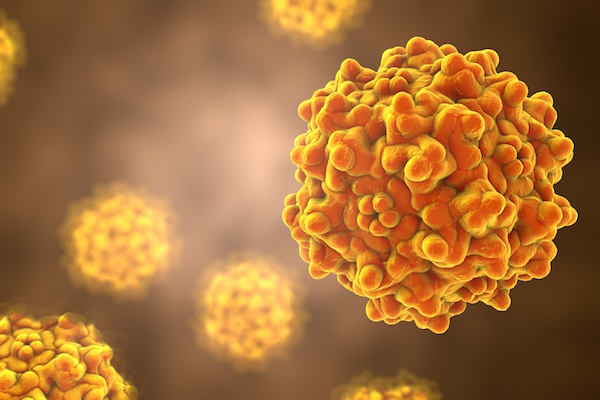
TUESDAY, Aug. 14 (HealthDay News) — Children younger than 2 who are given the hepatitis A vaccine are protected from the virus for 10 years, a new study shows.
Hepatitis A is a virus that causes inflammation of the liver, and typically is found in areas with poor sanitation where it is transmitted through contaminated food and water.
Researchers from the U.S. Centers for Disease Control and Prevention found that the transfer of a mother’s hepatitis A antibodies — which help defend against the virus — to her child does not reduce the effectiveness of the vaccine, which is routinely given to children between 12 months and 18 months old.
In conducting the study, the researchers examined nearly 200 infants and toddlers who were born at full term and healthy at 6 months of age. The children were divided into three groups based on their age: The first group was comprised of babies between 6 months and 12 months old, toddlers between 12 months and 18 months old formed the second group and those from 15 months to 21 months of age made up the third group.
The children’s mothers also were tested for hepatitis A antibodies.
The children’s hepatitis A antibody levels were measured at 1 month and 6 months. The researchers also conducted follow-up assessments at 3, 5, 7 and 10 years old, after the children received their second dose of the hepatitis A vaccine.
The study found that one month after they received the second dose of the vaccine, children in all three groups showed signs of protection from the virus. At the 10-year follow-up, most of the children were still protected form the virus.
The researchers noted that 7 percent of the 6- to 12-month-old babies born to mothers who did not have hepatitis A antibodies did not retain the protection from the virus provided by the vaccine. Moreover, 11 percent of the children from this group whose mothers did have hepatitis A antibodies also lost their protection.
The researchers also found that 4 percent of the children between 15 months and 21 months old who were born to women without hepatitis A antibodies no longer had protection from the virus after 10 years.
“Our study demonstrates that [the effects of] a hepatitis A [vaccine] persists for at least 10 years after primary vaccination … when administered to children at ages 12 months and older, regardless of their mothers’ anti-hepatitis A status,” study author Dr. Umid Sharapov, an epidemiologist with the CDC, said in a news release. “These findings support current CDC … guidelines for routine administration of two doses of inactivated hepatitis A vaccine to all children in the U.S., beginning at the age of 12 months.”
The study authors added that a future booster dose may be necessary for children to maintain protection against hepatitis A.
The study was published in the August issue of the journal Hepatology.
More information
The U.S. National Institutes of Health provides more information on hepatitis A.

